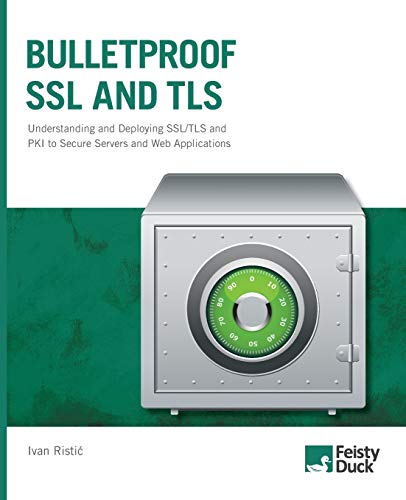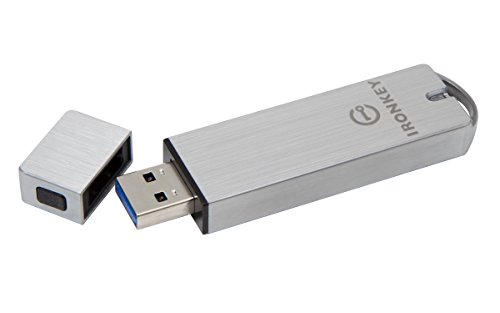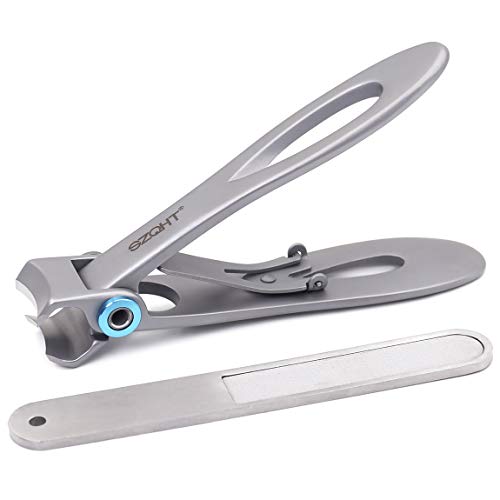Top products from r/encryption
We found 14 product mentions on r/encryption. We ranked the 13 resulting products by number of redditors who mentioned them. Here are the top 20.
1. The Code Book: The Science of Secrecy from Ancient Egypt to Quantum Cryptography
Sentiment score: 1
Number of reviews: 2
The Code Book The Science of Secrecy from Ancient Egypt to Quantum Cryptography
 Show Reddit reviews
Show Reddit reviews2. Cryptography Engineering: Design Principles and Practical Applications
Sentiment score: 1
Number of reviews: 1
Wiley Publishing
 Show Reddit reviews
Show Reddit reviews3. Applied Cryptography: Protocols, Algorithms, and Source Code in C
Sentiment score: 1
Number of reviews: 1
applied cryptography
 Show Reddit reviews
Show Reddit reviews4. Serious Cryptography: A Practical Introduction to Modern Encryption
Sentiment score: 1
Number of reviews: 1
 Show Reddit reviews
Show Reddit reviews5. Bulletproof SSL and TLS: Understanding and Deploying SSL/TLS and PKI to Secure Servers and Web Applications
Sentiment score: 0
Number of reviews: 1
 Show Reddit reviews
Show Reddit reviews6. Apricorn Aegis Secure Key FIPS Validated 4 GB USB 2.0 256-bit AES-CBC Encrypted Flash Drive ASK-256-4GB (Black)
Sentiment score: 0
Number of reviews: 1
FIPS Validated 256-bit Military Grade Hardware EncryptionPIN activated 7-15 digits - Alphanumeric keypad use a memorable number or word for your PINNo software or drivers requiredDust and water resistant durable aluminium housingOS and platform independent , compatible with Windows, Mac, Linux and e...
 Show Reddit reviews
Show Reddit reviews7. Apricorn Aegis Padlock 1 TB USB 3.0 256-bit AES XTS Hardware Encrypted Portable External Hard Drive (A25-3PL256-1000)
Sentiment score: 1
Number of reviews: 1
Utilizes Military Grade FIPS PUB 197 Validated Encryption AlgorithmSuper fast USB 3.0 Connection - Data transfer speeds up to 10X faster than USB 2.0Software Free Design - With no admin rights neededSealed from Physical Attacks by Tough Epoxy CoatingBrute Force Self Destruct FeatureWear Resistant Ke...
 Show Reddit reviews
Show Reddit reviews8. Blackberry 9720 Unlocked GSM OS 7.1 Cell Phone w/QWERTY Keybaord - Black
Sentiment score: 1
Number of reviews: 1
2G: GSM 850 / 900 / 1800 / 1900, HSDPA 850 / 900 / 1900 / 2100Full QWERTY Keyboard + Optical TrackpadBlackBerry OS 7.1, 806 MHz Tavor MG1 Processor5 Megapixel Camera (2592 X 1944 pixels) w/ LED FlashInternal Memory: 512 MB ROM, 512 MB RAM + microSD Slot Expandable up to 32GB
 Show Reddit reviews
Show Reddit reviews9. Apricorn Aegis Secure Key 30 GB FIPS 140-2 Level 3 Validated 256-bit Encryption USB 3.0 Flash Drive (ASK3-30GB)
Sentiment score: 1
Number of reviews: 1
Separate Admin and User ModesAegis Configurator CompatibleFIPS 140-2 Level 2 InsideData Reovery PIN'sProgramable Brute-Force DefenseFIPS 140-2 Level 3 ValidatedMilitary Grade Full-disk 256-bit AES XTS Hardware EncryptionPIN-Activated 7 - 16 digits - Alphanumeric keypadDust and water resistant IP58 C...
 Show Reddit reviews
Show Reddit reviews10. Kingston IronKey Basic S1000 Encrypted Flash Drive IKS1000B/4GB
Sentiment score: 1
Number of reviews: 1
4GB Basic S1000 USB3.0 FD Only
 Show Reddit reviews
Show Reddit reviews11. 32Gb Ik D300 Encrypted USB 3.0 Fips L3
Sentiment score: 1
Number of reviews: 1
UPC: 740617259537Weight: 0.200 lbs
 Show Reddit reviews
Show Reddit reviews12. Apricorn Aegis Secure Key 3Z 8GB 256-bit AES XTS Hardware Encrypted FIPS 140-2 Level 3 Validated Secure USB 3.0 Flash Drive (ASK3Z-8GB)
Sentiment score: 1
Number of reviews: 1
FIPS 140-2 Level 3 Validated drive with 256-bit AES XTS encryptionAegis Configurator CompatibleHigh quality rugged aluminum housing IP57 Water and Dust ResistantEmbedded 7-16 digit pin authentication with user forced enrollment2 Read -Only modes
 Show Reddit reviews
Show Reddit reviews13. SZQHT 15mm Wide Jaw Opening Nail Clippers for Thick Nails,Finger Nail Clippers for Ingrown Toenail Clippers for Men,Tough Nails, Seniors, Adults.Deluxe Sturdy Stainless Steel Big(Silver)
Sentiment score: 0
Number of reviews: 1
BUY WITH CONFIDENCE--This item includes a nail clipper and a file. Lifetime guarentee. If the item you receive does not meet our standard or if you are not satisfied with it, simply contact us for a replacement or a refund.EXTRA Wide JAW CURVED BLADES for Thick Nails-- Sharp, Curved, Wide jaw blades...
 Show Reddit reviews
Show Reddit reviews
It really depends on your threat model. There is no such thing as complete security. I'm no expert but I have several hardware-encrypted hard drives and flash drives, so I'll try to answer. I use them for similar purposes, so we likely have similar threat models.
First, it's important to recognize the inherent limits of an encrypted device like what you linked. It's only encrypted until you mount it, at which point an attacker with remote access can view the files just like you would. This can be countered by using an air-gapped computer, or one only used for these secure activities.
As for this particular device: The device you linked says it's FIPS 140-2, which means it's only tamper-evident, rather than tamper-resistant, and provides role-based authentication. So, a savvy hacker might be able to manipulate the hardware in some way to access the data (search "Kingston Datatraveler hack/vulnerability"), although you would be able to tell. You might combat this by using Veracrypt/Truecrypt containers inside the device, which is also good practice if you are backing up passwords somehow, as it enables easier password splitting (e.g. remember pin but backup Veracrypt password in pw manager).
A comparable tamper-resistant device (FIPS 140-3) is the Aegis 3z. If you're willing to pay more, the Kingston Ironkey is a literal iron fortress and is probably the hardest hardware to hack. It doesn't have a physical keypad, but autolaunches authentication software. This is vulnerable to keyloggers but arguably more secure against shoulder-surfing. It's also more configurable. The Kingston D300 is very similar (slightly cheaper), with the difference being the security chip (I don't know enough here to comment).A notable alternative is the Aegis Padlock, which is a literal hard-drive with a large keypad and lots of configurations (including false drives and keycodes that wipe the entire device, though other devices I've mentioned have similar features).
While shopping, it is good to note the distinction between FIPS-validated vs. FIPS-compliant, with the latter being little more than a promise, although few encrypted devices are actually verified.
Let me know if you want elaboration on anything. I have every device I mentioned and some knock-offs too. I don't know too much about about the technicals, but it's a field I'm looking to get into so I can try and answer until someone better comes along.
For what it's worth, cryptography is famously hard to get right and I would strongly recommend that you use existing crypto software if you are actually trying to secure your computer.
That said, if you're interested in coding and want to learn more about encryption just for fun, you should check out the Matasano Crypto Challenges. They teach you about the fundamentals of cryptography by having you build a bunch of ciphers and then break them.
If you're looking into doing this more professionally, I've been told that Cryptography Engineering and Applied Cryptography are some good resources, though I haven't read them myself.
If you like books and are interested in modern cryptography, "Serious Cryptography" was excellent. A more introductory text with historical context is "The Code Book".
Their site claims that all units include 100% secure purchasing, 256-bit AES encryption, user-generated PGP keys, unlimited email accounts and "comprehensive" tech support. Here are their prices:
Service/Term|3 Mo.|6 Mo.|12 Mo.
---|---|---|---
PGP service only|$650|$995|$1800
w/Blackberry 9720|$900|$1250|$2050
w/Blackberry 9320|$850|$1200|$2000
Amazon sells new, unlocked Blackberry 9720's and 9320's for $105.49 and $59.88 respectively, so a $200-$255 device charge seems a bit high. Also, the fact that their site doesn't seem complete or fully functional makes me hesitant.
If I were in the market for such a service I'd probably start with GhostPGP and work from there. I'd probably bring my own device either way.
Have you looked into hardware encrypted USB? something that requires a pin on a numpad on the device... Something like [this](Apricorn Aegis Secure Key 30 GB FIPS 140-2 Level 3 Validated 256-bit Encryption USB 3.0 Flash Drive (ASK3-30GB) https://www.amazon.com/dp/B00XWPGKCW/ref=cm_sw_r_cp_apa_i_30zYCb77VVM9E)
The Code Book is exactly what you are looking for. Very fun read, very informative.
Looks like it's a url.
https://www.amazon.com/dp/B0773KW52B/
Yep, the BIOS is password is set on the motherboard software, as you've called it. It's the screen you access by hitting F12 or Del or whatever at bootup, before the OS starts. They vary in their password features, but there should be at least one to set a "system" password. You'll also need to configure it to boot from a USB drive before the internal drives.
Secure USB: http://www.amazon.com/Apricorn-Validated-256-bit-Encrypted-ASK-256-4GB/dp/B00741U31E/
So the idea is that you unlock & insert the USB stick, power on the machine, enter the system password, it boots from the stick, then the bootloader either contains a keyfile or prompts to unlock the hard drives via another password.
Lots of overhead actually, but each layer secures against a different threat.